As a BetterHelp affiliate, we receive compensation from BetterHelp if you purchase products or services through the links provided
Deciding to seek therapy can be life-changing, positively impacting your mental health and overall well-being. However, with various types of therapy available, finding the best one for you can feel daunting. A “What Type of Therapy Do I Need Quiz” can serve as a helpful tool in narrowing down your options and determining which therapeutic approach best suits your needs and preferences.
A therapy quiz can clarify the issues you want to address and offer insights into the therapeutic modalities. Some popular therapy types include cognitive behavioral therapy (CBT), psychodynamic therapy, and humanistic therapy, each with its unique approach to helping individuals overcome their mental health challenges. While a quiz can provide valuable guidance, it is essential to remember that professional assistance and in-depth consultation with a therapist will ultimately ensure the most appropriate therapy selection.
Key Takeaways
- A “What Type of Therapy Do I Need Quiz” can help identify the best therapeutic approach for your needs.
- There are various therapy types, such as cognitive behavioral therapy, psychodynamic therapy, and humanistic therapy.
- While quizzes offer guidance, professional assistance and consultation with a therapist are essential for selecting the most appropriate therapy.
 Recognizing the Need for Therapy
Recognizing the Need for Therapy
Recognizing the need for therapy is essential in addressing and managing mental health conditions. Individuals may experience various symptoms that can disrupt their daily lives, such as stress, distress, difficulty concentrating, anger, anxiety, depression, and negative thoughts. It is crucial to pay attention to these symptoms, as they may indicate the presence of a mental health condition.
Mental health conditions can manifest themselves in different ways, and their symptoms can vary in severity and impact. For instance, stress can result in tense muscles, irritability, and trouble sleeping. On the other hand, anxiety may lead to constant worry, restlessness, and panic attacks. Depression, a common mental health condition, often presents with feelings of sadness, hopelessness, and disinterest in activities.
It is important to remember that experiencing these symptoms occasionally is a normal part of life. However, when they persist and interfere with one’s daily activities, relationships, and overall well-being, it may be time to consider seeking help from a trained medical professional. A therapist can help identify the root cause of these issues, explore coping strategies, and provide guidance to work toward improved mental health.
Taking a quiz to determine what type of therapy may be suitable can be a helpful first step in the treatment process. By answering questions about one’s thoughts, emotions, and behaviors, individuals can gain insight into their mental health and possible treatment options. However, it is important to note that such quizzes are not a definitive or exhaustive means of diagnosing a mental health condition. Consulting with a qualified professional is essential for accurate assessment and guidance.
Recognizing the need for therapy is crucial for addressing mental health concerns and working towards a healthier, more balanced life. Awareness of the signs and symptoms associated with mental health conditions can help individuals determine when to seek professional support, and taking a quiz may serve as a preliminary step in finding the most suitable therapy approach.
 Understanding Therapy: An Overview
Understanding Therapy: An Overview
Therapy is a broad term that encompasses various methods of helping individuals overcome mental health issues, personal challenges, and emotional distress. Different types of therapy have been developed to address specific concerns, and understanding the key distinctions among them can guide you in your search for appropriate treatment.
Psychotherapy, often called talk therapy, is a typical therapy that allows individuals to discuss their thoughts, emotions, and experiences with a trained mental health professional. This process helps individuals work through their issues and progress toward emotional well-being. Some key types of psychotherapy include cognitive-behavioral therapy, dialectical behavior therapy, acceptance and commitment therapy, interpersonal psychotherapy, psychodynamic therapy, and behavior therapy.
Cognitive-behavioral therapy (CBT) focuses on helping individuals recognize and change negative thought patterns and behaviors, which can alleviate emotional distress. Through CBT, clients learn problem-solving skills and develop coping mechanisms to manage their emotions better and navigate life challenges.
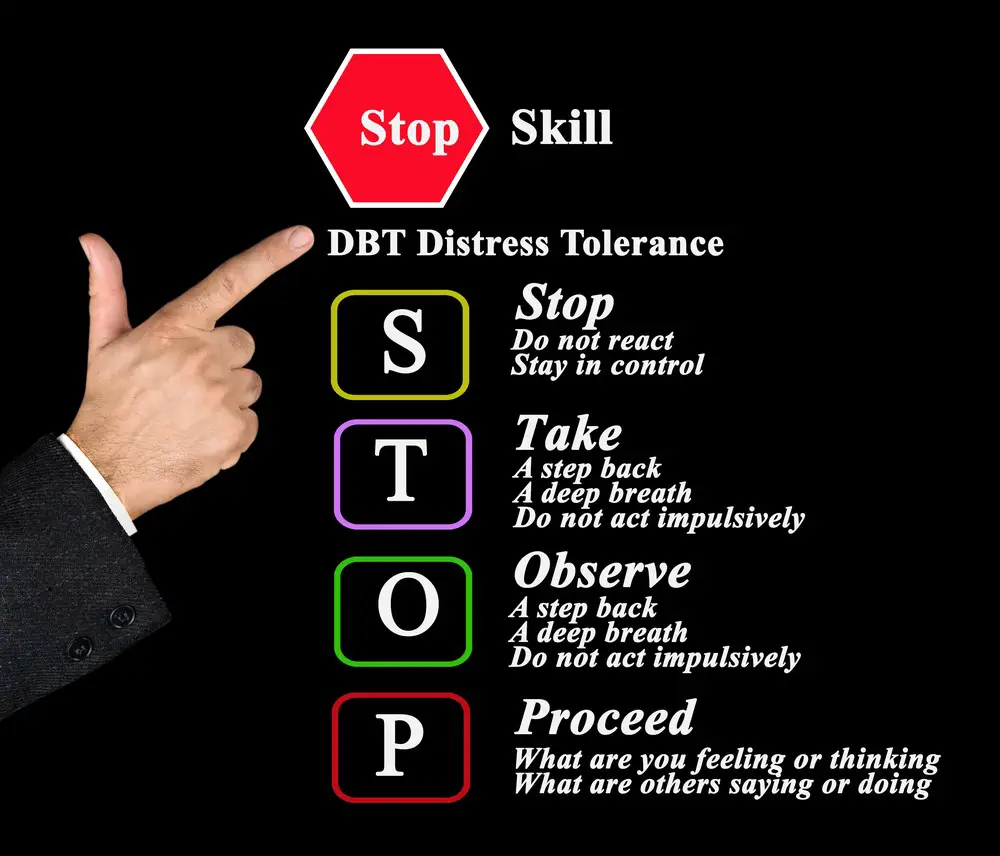 Dialectical behavior therapy (DBT) is a cognitive-behavioral therapy originally developed to treat borderline personality disorder. DBT emphasizes developing skills in mindfulness, emotion regulation, distress tolerance, and interpersonal effectiveness to help individuals balance acceptance and change.
Dialectical behavior therapy (DBT) is a cognitive-behavioral therapy originally developed to treat borderline personality disorder. DBT emphasizes developing skills in mindfulness, emotion regulation, distress tolerance, and interpersonal effectiveness to help individuals balance acceptance and change.
Acceptance and commitment therapy (ACT) is also rooted in cognitive-behavioral therapy but emphasizes acceptance and mindfulness strategies more. ACT aims to help clients accept painful thoughts, feelings, and experiences without judgment and engage in meaningful action by their values.
Interpersonal psychotherapy (IPT) focuses on an individual’s interpersonal relationships and aims to improve communication, enhance social support, and address conflicts. IPT can be particularly helpful for individuals dealing with depression, grief, or other emotional difficulties stemming from relational issues.
Psychodynamic therapy delves into an individual’s unconscious mind and explores the influence of past experiences on their current thoughts and behaviors. Through this understanding, clients can gain insights into unresolved conflicts contributing to their mental health.
Behavior therapy emphasizes the role of learned behaviors in shaping an individual’s emotional and mental well-being. This type of therapy aims to help clients replace unhealthy behaviors with healthier ones through exposure therapy or systematic desensitization.
In addition to traditional in-person treatments, online therapy has become increasingly popular due to its convenience and accessibility. Online therapy can be delivered through video chats, phone calls, or text messaging, allowing clients to connect with mental health professionals from their homes.
Ultimately, the type of therapy an individual needs depends on their unique circumstances, goals, and preferences. Taking a quiz designed to determine which therapy might be best suited for them can be a helpful starting point. It is essential, however, to consult with a mental health professional for a comprehensive assessment and tailored treatment recommendations.
Role of Quizzes in Therapy Selection
Quizzes can play a helpful role in the preliminary stages of choosing a suitable therapy option. Designed as assessment tools, they can provide insights into an individual’s mental health and help identify areas of concern.
Though these self-assessment quizzes are not a substitute for a professional evaluation, they can serve as a starting point to understand one’s needs better. As diagnostic tools, quizzes can help people become more aware of their emotions, identify symptoms they might not have noticed before, and even provide a conversation starter between an individual and their mental health practitioner.
Several online quizzes address various conditions like anxiety, depression, and stress. These instruments often include questions specifically targeting common symptoms and experiences of each mental health issue. By evaluating an individual’s responses, a quiz can suggest potential therapy options to explore further.
While using quizzes for therapy selection, it is crucial to understand that these tools are not definitive sources of information. Instead, they should be used to encourage further exploration and discussion with a mental health professional who can provide a more precise diagnosis and personalized treatment plan.
In summary, quizzes can be a valuable component in the therapy selection by offering initial guidance and promoting self-awareness. However, they should not replace professional assessments and evaluations, and it’s essential to consult with a mental health expert for proper diagnosis and support.
 Professional Assistance in Therapy Selection
Professional Assistance in Therapy Selection
When seeking therapy for mental health concerns, finding the right type of therapy and therapist to meet your individual needs is important. A mental health professional, such as a psychologist, psychiatrist, or clinical social worker, can help guide you in making this decision.
The first step in therapy selection is consulting with a mental health professional or primary care doctor. They can discuss your specific concerns, symptoms, and goals to determine the type of therapy most beneficial for you. A referral to a therapist who specializes in the recommended therapy approach may also be provided.
Numerous therapy approaches are available, and each has its benefits and limitations. Some common forms of therapy include cognitive-behavioral therapy (CBT), psychodynamic therapy, and humanistic therapy. A mental health professional can help identify which approach may be most effective for you based on factors such as the severity of your symptoms, personal beliefs, and individual preferences.
Finding the right therapist is another key aspect of therapy selection. Consider factors such as therapists’ training, specialization, and experience, as well as their communication style and the rapport you feel with them. You may need to meet with a few therapists before finding the right fit. Remember, a strong therapeutic alliance is essential for successful therapy outcomes.
Lastly, it’s important not to overlook the accessibility and affordability of therapy. Consider your insurance coverage, therapy costs, and therapists’ availability in your area when deciding.
In conclusion, seeking professional assistance in selecting therapy is crucial in finding the right therapy and therapist. By considering factors such as therapy approach, therapist characteristics, and accessibility, you can make an informed decision and begin your journey toward better mental health.
 Different Types of Therapy and their Appropriateness
Different Types of Therapy and their Appropriateness
Multiple types of therapy are available, each suited to address specific psychological needs or issues. Here, we will discuss some common therapy types, including counseling, Acceptance and Commitment Therapy (ACT), Cognitive Behavioral Therapy (CBT), Dialectical Behavior Therapy (DBT), and coaching.
Counseling often involves one-on-one sessions with a therapist who listens and provides guidance on managing emotions and relationships or working through life challenges. It is suitable for those seeking a supportive environment to share their concerns and gain insights into their thoughts and feelings.
Acceptance and Commitment Therapy (ACT) aims at developing psychological flexibility by helping individuals accept their thoughts and feelings rather than trying to eliminate or control them. It teaches individuals to focus on values-driven actions. ACT benefits people with anxiety, depression, or chronic pain.
Cognitive Behavioral Therapy (CBT) is an evidence-based approach that identifies and challenges negative thought patterns and behaviors. It aims to replace these maladaptive thoughts with more adaptive ones, ultimately improving the individual’s overall well-being. CBT suits various issues, including depression, anxiety, and addiction.
Dialectical Behavior Therapy (DBT) is a specialized form of CBT specifically targeting individuals with severe emotional dysregulation, often found in borderline personality disorder. It combines elements of CBT with mindfulness techniques and skill-building in four key areas: emotional regulation, distress tolerance, interpersonal effectiveness, and mindfulness. DBT has proven effective in treating borderline personality disorder, substance use, and eating disorders.
Coaching is a collaborative process that helps individuals achieve specific personal or professional goals. Coaches provide guidance, feedback, and support to empower clients to reach their full potential. While coaching can be beneficial for anyone pursuing personal or professional growth, it may not be appropriate for individuals with complex psychological issues requiring specialized interventions.
When deciding which therapy is most suitable, one must consider one’s unique circumstances, goals, and preferences. Each therapeutic approach offers different means of achieving improved mental health and well-being.
 Therapeutic Techniques and Their Role in Different Types of Therapy
Therapeutic Techniques and Their Role in Different Types of Therapy
Therapeutic techniques are essential in addressing various emotional, behavioral, and well-being issues. Each type of therapy focuses on different aspects, such as mindfulness, distress tolerance, emotion regulation, and addressing past trauma.
One popular therapy technique is cognitive-behavioral therapy (CBT). It aims at helping individuals identify and change unhealthy thought patterns and behaviors. CBT practitioners often assign homework to clients to practice skills learned during sessions and frequently seek feedback on the process. This therapy is particularly effective for individuals seeking more control over their emotions and behaviors.
Dialectical behavior therapy (DBT) is another well-known approach that teaches clients distress tolerance and mindfulness. This type of therapy emphasizes the balance between acceptance of the present situation and the need for change. DBT can empower clients to manage their emotional reactions better, especially when emotions seem overwhelming.
In contrast, psychodynamic therapy examines how a person’s past experiences, especially childhood trauma, can shape their present actions and feelings. By exploring unresolved issues from the past, this therapy can help clients gain insight into their present emotional struggles and achieve a greater sense of well-being.
On the other hand, strength-based therapy concentrates on a person’s strengths and abilities. This approach encourages clients to utilize their existing skills and talents in overcoming challenges and improving their overall mental health. By focusing on strengths, this therapy can restore a sense of control and confidence in clients.
Finally, mindfulness-based therapies, such as mindfulness-based stress reduction (MBSR) and mindfulness-based cognitive therapy (MBCT), teach clients to be more present and aware of their thoughts, feelings, and bodily sensations. These therapies can help individuals cultivate nonjudgmental awareness, contributing to improved emotional regulation and a heightened sense of overall well-being.
In conclusion, the choice of therapy depends on the individual’s unique needs and goals. Considering factors such as current emotional distress, past trauma, strengths, and areas of improvement can guide clients and their therapists toward the most suitable therapeutic approach.
Therapy Costs and Resources
When considering therapy, it’s important to know the costs and resources available. The cost of therapy can vary widely depending on factors such as the therapist’s experience, location, and the type of therapy being utilized. On average, therapy sessions can range from $60 to $250 per hour. Some therapists may offer a sliding fee scale, which adjusts the cost based on your income, or accept insurance plans to help offset the cost.
In addition to individual therapy, many resources are available to help you find the right therapy and support. Group therapy is often more affordable than individual therapy, with prices ranging from $20 to $50 per session. This option allows you to connect with others experiencing similar challenges and supports a collaborative healing environment.
Online therapy has become increasingly popular as it offers a more convenient and often cheaper alternative to in-person sessions. Websites such as Talkspace and BetterHelp provide access to licensed therapists for a flat monthly fee, typically between $200 and $300. Mobile apps are another resource, offering self-guided treatment options and access to mental health resources at a lower cost. Examples include Calm, Headspace, and Sanvello.
Additionally, many communities offer low-cost or free mental health clinics supported by local governments or charitable organizations. These clinics provide various services, including therapy, medication management, and case management support. To find one near you, consider searching for “low-cost mental health clinics” followed by your city or town.
Lastly, don’t underestimate the value of self-help books, podcasts, and online resources focused on mental health and wellbeing. While these options may not replace therapy for more severe or chronic issues, they can provide useful guidance and support. You can find the right type of therapy tailored to your needs and budget by thoroughly researching and utilizing the available resources.
Dealing with Specific Mental Health Conditions
When it comes to finding the right therapy for specific mental health conditions, such as PTSD and depression, it is crucial to consider the unique needs and characteristics of the individual. Each person’s experience with mental health disorders can differ; thus, the appropriate therapy may vary.
For those dealing with PTSD (Post-Traumatic Stress Disorder), trauma-focused therapy options can be particularly helpful in addressing the root cause of the distress. Two evidence-based therapy choices for PTSD include:
- Cognitive Processing Therapy (CPT): This approach involves helping individuals reframe and challenge their thoughts related to their trauma. It encourages the development of new, more adaptive thought patterns.
- Prolonged Exposure Therapy (PE): This approach allows individuals to confront and process their traumatic memories gradually so that they no longer avoid triggers and can regain control over their emotions.
In the case of depression, several therapy options have proven effective in reducing symptoms and fostering healthier emotional well-being. Some commonly recommended options include:
- Cognitive-Behavioral Therapy (CBT): This approach explores the relationship between thoughts, feelings, and behaviors. It helps identify negative thought patterns and teaches individuals new strategies to change maladaptive behavioral responses.
- Interpersonal Therapy (IPT): This approach addresses interpersonal issues contributing to depression, such as conflict resolution, communication skills, and managing grief or loss.
- Mindfulness-Based Cognitive Therapy (MBCT): This approach combines mindfulness techniques with traditional CBT to help individuals focus on their thoughts and feelings without judgment and develop healthier coping mechanisms.
To determine the most appropriate type of therapy, an individual should consider their mental health condition, symptoms, and personal preferences. It may also be helpful to consult with a mental health professional who can guide them in finding the best therapy option for their unique situation.
 Benefits of Therapy
Benefits of Therapy
Therapy offers numerous advantages to individuals seeking support, facing challenges in their relationships, or wanting to improve their future. One key benefit of therapy is that it provides a safe space for individuals to explore their unique needs and emotions, helping them better understand themselves and others.
Another benefit is developing coping strategies for life’s challenges and problems. In therapy, individuals learn to identify triggers, adopt healthier responses, and hone problem-solving skills. These tools can lead to increased resilience and emotional well-being.
Therapy can also help individuals improve their relationships, both personal and professional. By addressing communication issues and building empathy, individuals can develop stronger bonds with their loved ones and colleagues, ultimately leading to greater satisfaction in their interpersonal connections.
Several common types of therapy cater to the diverse needs of individuals. These include cognitive-behavioral therapy (CBT), which targets negative thought patterns and behaviors; psychodynamic therapy, which delves into unconscious thoughts and emotions; and humanistic therapy, which emphasizes personal growth and self-awareness. Each therapy style addresses different aspects of a person’s mental health, offering tailored support and guidance.
In conclusion, therapy can support individuals as they navigate their challenges and relationships. Therapy can pave the way for a brighter and more fulfilling future by addressing their unique needs and fostering personal growth.
Understanding Your Needs and Preferences in Therapy
Determining the right type of therapy begins with understanding your individual needs and preferences. Therapy is not a one-size-fits-all solution; each person may require different approaches to address their unique circumstances effectively.
It is essential to identify the motivation behind seeking therapy. Are you looking to overcome an emotional or mental health issue, develop self-awareness, or improve your relationships? Recognizing the purpose of therapy will help you pinpoint the techniques that may work best for you.
Moreover, consider your personal preferences in therapy. Some individuals might benefit from traditional one-on-one counseling, while others may feel more comfortable in a group setting or with the guidance of a coach. Determine whether you prefer a more structured approach with clear objectives and timelines or if you lean towards exploring your thoughts and emotions with less structure.
Another aspect to consider is the therapist’s theoretical orientation, which refers to their perspective on human behavior and the methods they use to guide therapy. Common orientations include cognitive-behavioral, psychodynamic, and humanistic approaches. Familiarize yourself with these approaches and decide which aligns with your beliefs and preferences.
Once you’ve identified your needs and preferences, finding a therapist or coach with whom you can build a healthy, trusting relationship is crucial. A strong therapeutic alliance is vital in maximizing the benefits of therapy.
Conclusion
Taking a “What Type of Therapy Do I Need?” quiz can be a helpful starting point for individuals seeking mental health support. These quizzes enable individuals to understand their concerns and needs better and explore the various therapeutic approaches that may suit them. However, these quizzes should not be seen as a definitive means to finding the perfect therapist or therapy type.
It is essential to remember that mental health is a complex and individualized matter. Each person’s struggles and experiences are unique; no single therapy approach will work for everyone. It is crucial to research and weigh the pros and cons of each therapy type before making a decision. This may involve reading about different techniques, consulting a mental health professional, or discussing options with a trusted support system.
Moreover, once an individual has identified a suitable therapy type, the next step is selecting a therapist specializing in that approach. Finding the right therapist is an important aspect of successful therapy, and it may be helpful to request referrals, read online reviews, or attend introductory sessions to find the best fit. Additionally, a client’s therapeutic journey may include exploring several therapy types and therapists before settling on the most effective combination.
In conclusion, a “What Type of Therapy Do I Need?” quiz can be an initial guide when venturing into mental health support. While the answers from such quizzes may be informative, it is necessary to remember that finding the right therapy type and therapist is a unique process that requires further exploration and reflection.
Frequently Asked Questions

What is the best therapy for depression and anxiety?
There is no one-size-fits-all answer to this question, as the effectiveness of therapy may vary from person to person. However, some commonly recommended therapies for depression and anxiety include Cognitive Behavioral Therapy (CBT), Interpersonal Therapy (IPT), and Dialectical Behavior Therapy (DBT). It is essential to consult a mental health professional to determine the best therapy for you.
Do I require therapy for my current situation?
Whether or not someone requires therapy depends on the individual and their situation. If someone is struggling with emotional distress, relationship issues, or mental health concerns, it may be beneficial to seek therapy. A mental health professional can help determine if therapy is needed and recommend the appropriate type of therapy.
Which therapy is suitable for relationship issues?
Couples or family therapy is often recommended for relationship issues. This type of therapy focuses on improving communication and addressing conflicts within relationships. Individual therapy, such as CBT or psychodynamic therapy, can also help address personal issues that may impact the relationship.
How can I determine if I need therapy for anxiety?
Determining if you need anxiety therapy on your own can be challenging. However, if you find that anxiety affects your daily life, relationships, or work performance, it may be a sign that professional help is needed. A mental health professional can assess your situation and help you determine if therapy for anxiety is right for you.
What factors should I consider when choosing a therapist?
When choosing a therapist, some factors to consider include the professional’s credentials, experience with the specific issue you are facing, the therapist’s approach to therapy, and the cost of sessions. Additionally, finding a therapist with whom you feel comfortable is important since building a trusting relationship is crucial for successful therapy.
How can I access affordable therapy options?
There are various ways to access affordable therapy, including community mental health clinics, university counseling centers, sliding scale fees offered by some private therapists, and online therapy platforms. Some insurance plans also cover mental health services. It’s essential to research and compare different options to find the therapy that is both affordable and appropriate for your needs.
About the Author: Jacob Maslow
Walking the winding path of mental health has taught me more about life’s complexities than I could have imagined. As a therapy veteran, I lean on Lexapro to balance my mental state. My journey has been marred by the challenging ordeal of facing an ex with deeply rooted narcissistic behaviors, resulting in the painful alienation of my two dear children. Their voices, once a daily comfort, have been stifled by non-compliance to custody orders, and our once-close bond now feels distant.
Each day, my long walks serve as a therapeutic escape, allowing me to reflect, heal, and strategize. Pouring my experiences into writing, I’ve dedicated myself to aiding those grappling with mental health challenges and the trauma of dealing with narcissistic relationships. I hope to empower readers with knowledge through my articles, shedding light on topics often left in the shadows. I’ve also founded a legal site that supports those ensnared in the challenging web of spousal defiance regarding court mandates, particularly when children are used as emotional weapons.
With conviction, I believe that mental health struggles can be overcome. We can reclaim our peace and well-being with knowledge, resilience, and support.
- Breaking the Silence: Why Men’s Mental Health Matters More Than Ever - April 15, 2025
- How to Transform a Home’s Patio Space into a Relaxing Space - March 23, 2025
- 5 Strategies to Use a Cell Phone to Help Manage Your Stress - March 23, 2025
This site contains affiliate links to products. We will receive a commission for purchases made through these links.


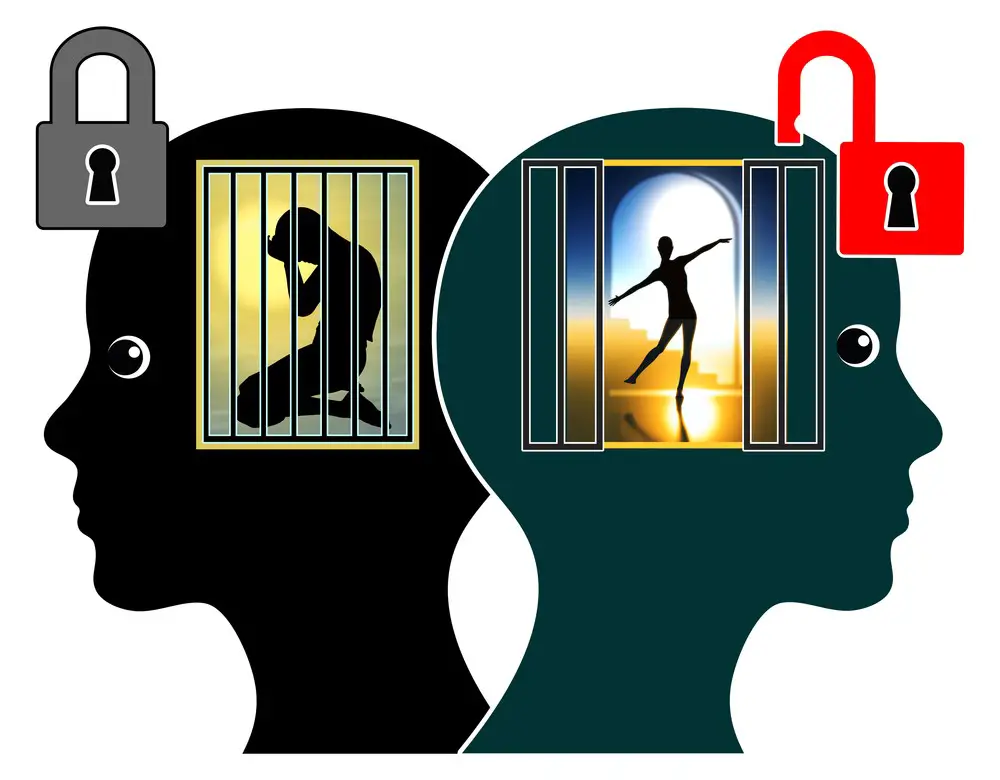 Recognizing the Need for Therapy
Recognizing the Need for Therapy Understanding Therapy: An Overview
Understanding Therapy: An Overview Professional Assistance in Therapy Selection
Professional Assistance in Therapy Selection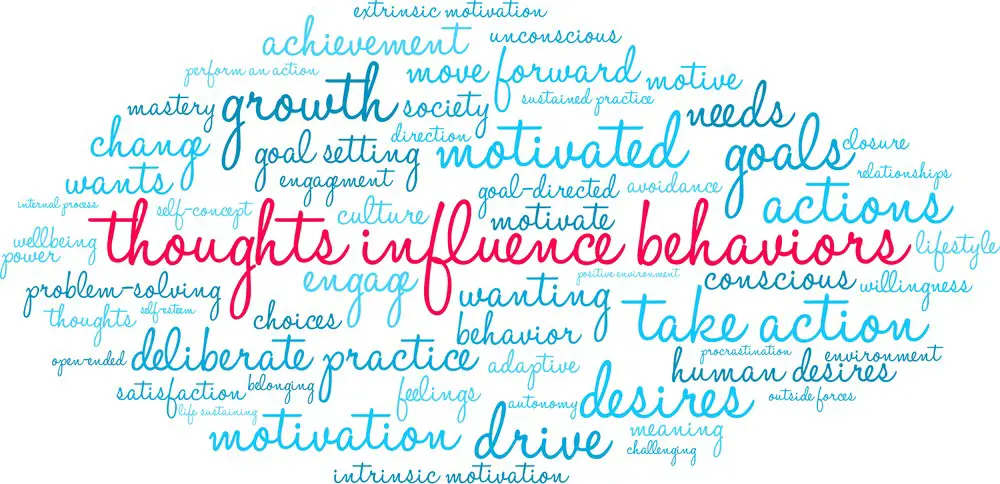 Different Types of Therapy and their Appropriateness
Different Types of Therapy and their Appropriateness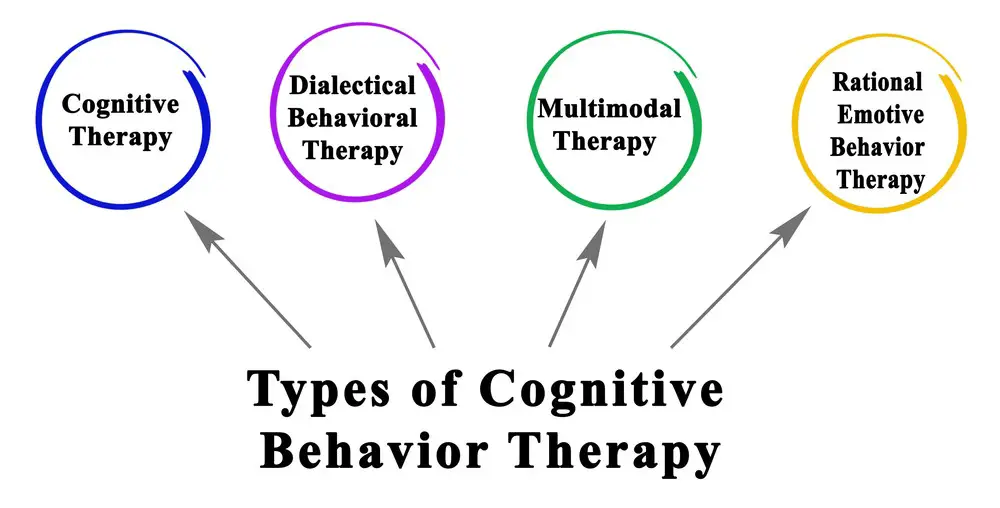 Therapeutic Techniques and Their Role in Different Types of Therapy
Therapeutic Techniques and Their Role in Different Types of Therapy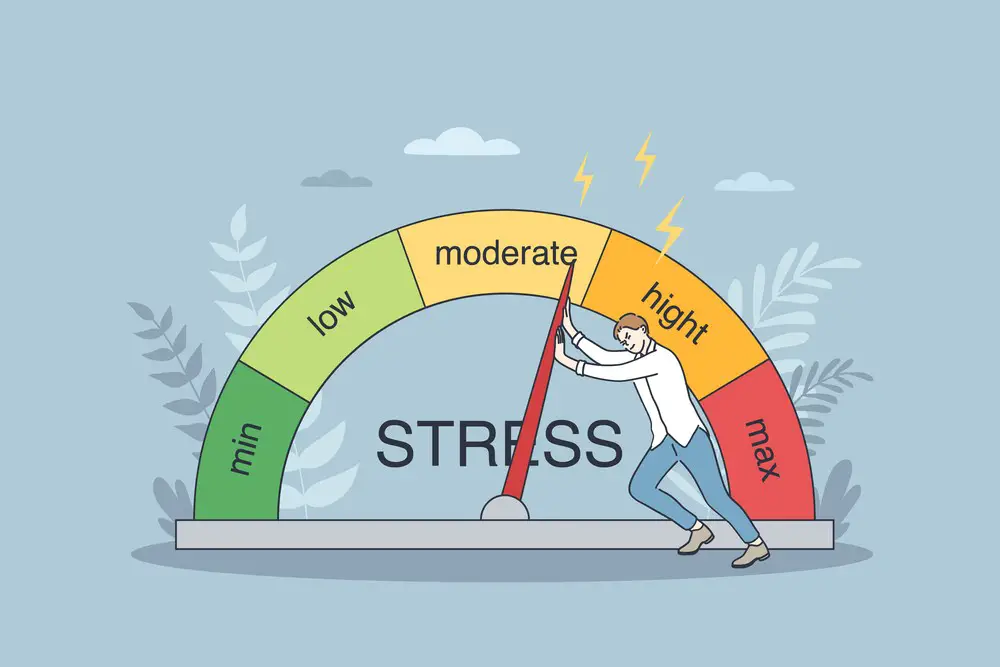 Benefits of Therapy
Benefits of Therapy
